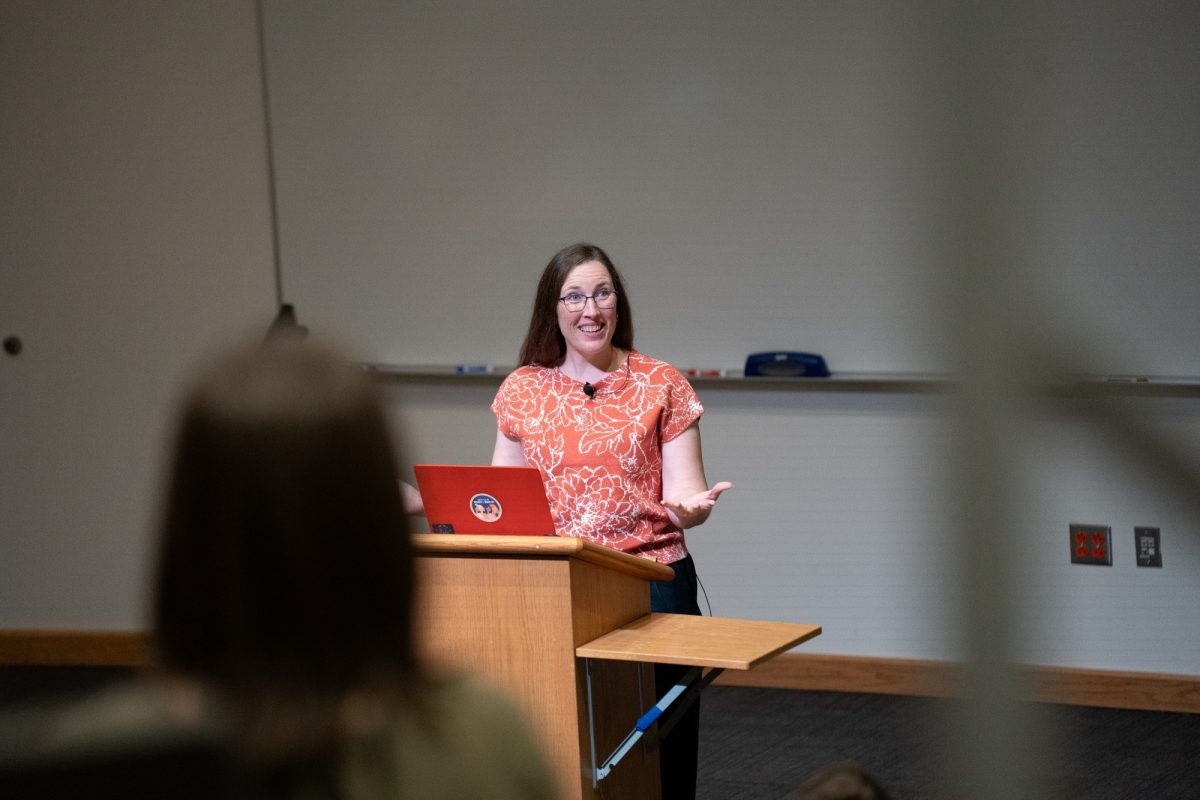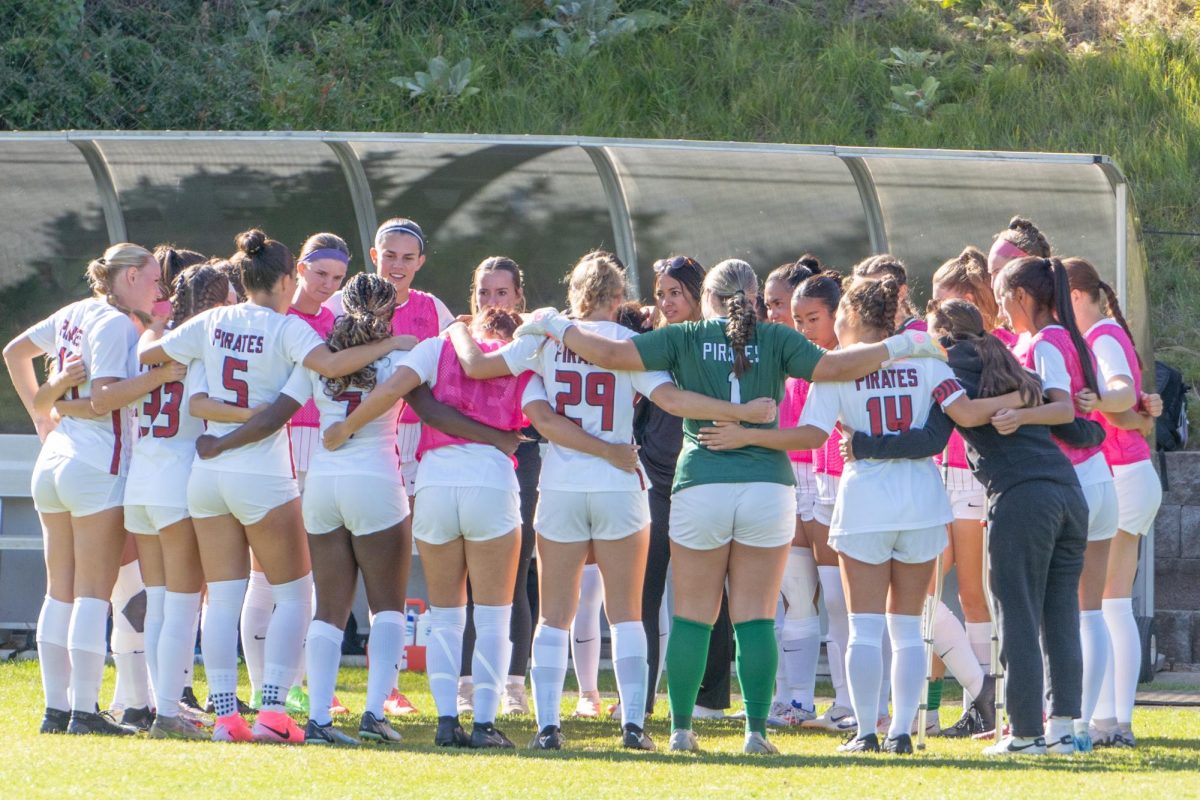On Monday, Sept. 23, Whitworth alumni Miranda Zapor Cruz gave a lecture in Weyerhaeuser Hall, tackling questions that Christians often ask themselves in the political sphere. Cruz aimed to answer tough questions such as, “should we include our convictions in political discourse?” and “is there a certain political party that Christians should stick to?”
For Cruz, such questions are important because some Christians are prone to separate themselves from the world, building a wall against their faith. Some, however, are eager to aggressively impose their beliefs onto others. But what should Christians do?
To answer the original two questions, Cruz says yes, you can include your convictions, and no, there is not one specific political party. However, there are multiple things to consider first. Cruz first notes that one must realize that no nation — not even the United States of America — is equivalent to the Kingdom of God. In other words, we cannot act as if we are trying to create Heaven on Earth. The world has seen many nations, empires and kingdoms rise and fall; Cruz says that only God’s Kingdom cannot be conquered, corrupted, or overruled.
“The US has never been and will never be the Kingdom of God,” she said during the lecture. “Our citizenship is in Heaven.”
Therefore, to regulate the United States as if it has favor in God is not how Cruz wants Christians to bring their beliefs to the table. To Cruz, this mindset is nationalistic and a major source of tension between Christians and non-Christians in America. Cruz added that Dominionism — forcing our beliefs onto others — rejects the idea that we bring Christ through our actions within society.
Instead, Christians should demonstrate the love and presence of Christ through our actions, as this, according to Cruz, is what we can do to uplift the image of Christ.
Another aspect that Cruz wanted to drive home is the difference between American freedom and God’s freedom. Instead of self-governing liberty like many imagine American freedom to be, Cruz says the Bible’s definition of freedom is to free the oppressed and be free from sin. Therefore, the goal is to bring Christian freedom into our world under the definition of American freedom.
When it comes to taking part in political discussion, Cruz emphasized what she calls “saltiness.” This means that we need to critically think, review, thoroughly study political parties and be willing to acknowledge when the party you most align with deviates from your beliefs. This is a stark contrast to being fully loyal to one party holding all their beliefs and calling one party evil and the other one good. Cruz calls these types of Christians bland and wishes for Christians to choose a more honest and well-rooted approach when choosing their political parties.
The reason that Christians may differ politically is that different Christians have different convictions which can affect one’s priorities in voting, according to Cruz. However, by acknowledging and following the previously stated values of both the world and Christianity, Cruz believes we will be better suited for meaningful political discourse.
After a closing prayer, participants were given the chance to share their thoughts; those who were interviewed appeared to resonate with Cruz’s lecture. “The point that stuck out most to me was how we aren’t supposed to think of American politics as bringing the Kingdom of God to Earth,” said Sarah Mott, a senior at Whitworth. “We’re not supposed to force our beliefs on other people, [rather] we’re supposed to model Christ’s life.”
ASWU president Isaac Price shared similar views. “I found it helpful what she [said] about bringing our faith into how we engage politically, while at the same time not aligning ourselves with [a] party or confusing [America] with the Kingdom of God,” he said.
Price’s biggest takeaway was that Christians should bring their convictions to the forefront and stay faithful to Christianity while also allowing for space and approaching issues in a thoughtful way. “I think that is the vital distinction we as Christians can faithfully engage [in],” he said.
Whitworth staff member Abigail Hopkins said, “I thought the lecture was really thought-provoking. Dr. Cruz did a really good job staying nonpartisan and presenting her thoughts…that the majority of Christians could respect and adhere to.”
The thought provoking aspect was present in others as well and influenced their interest in voting for the upcoming election. A Whitworth freshman, Olivia Smith, said “I don’t know a lot about politics, [but] after this event, I think I’ll look into [politics] more.”
According to the lecture, Dr. Miranda Zapor Cruz originally started her faith in the early 2000’s while at Whitworth when she and her roommate wanted to learn more about politics. Cruz graduated from Whitworth in 2005 with a degree in religion. She has authored a book, Faithful Politics: Ten Approaches to Christian Citizenship and why it matters.
For more information about Dr. Miranda Zapor Cruz, visit https://mirandazaporcruz.com.












